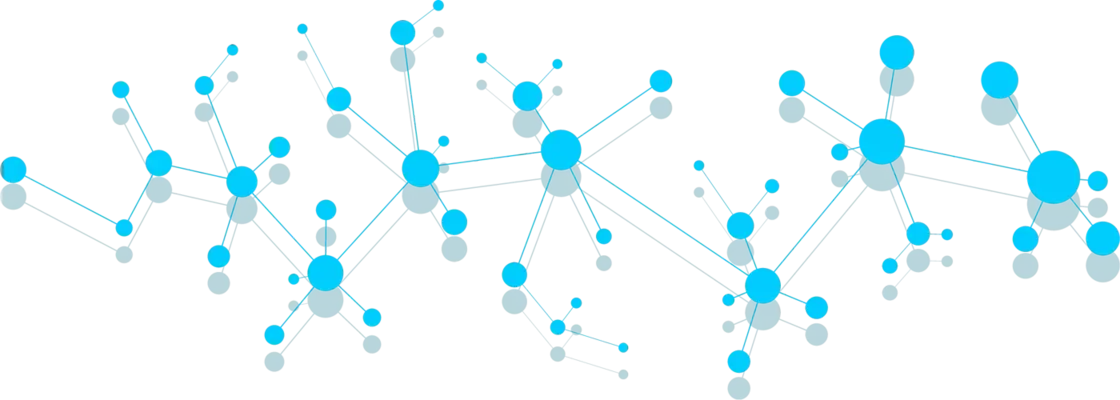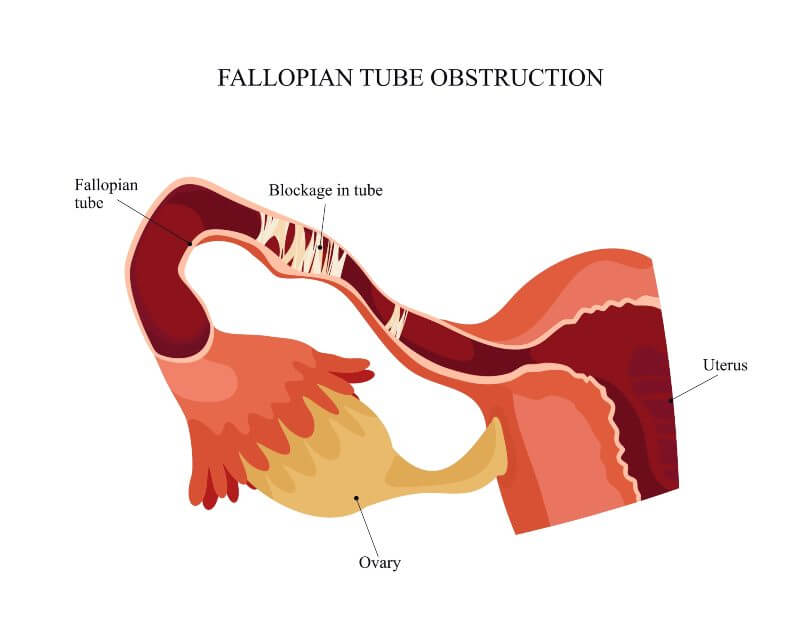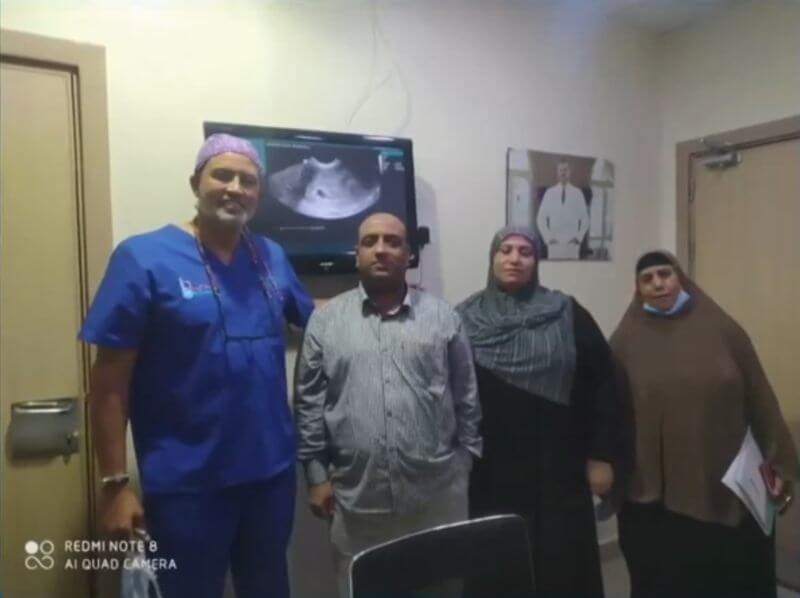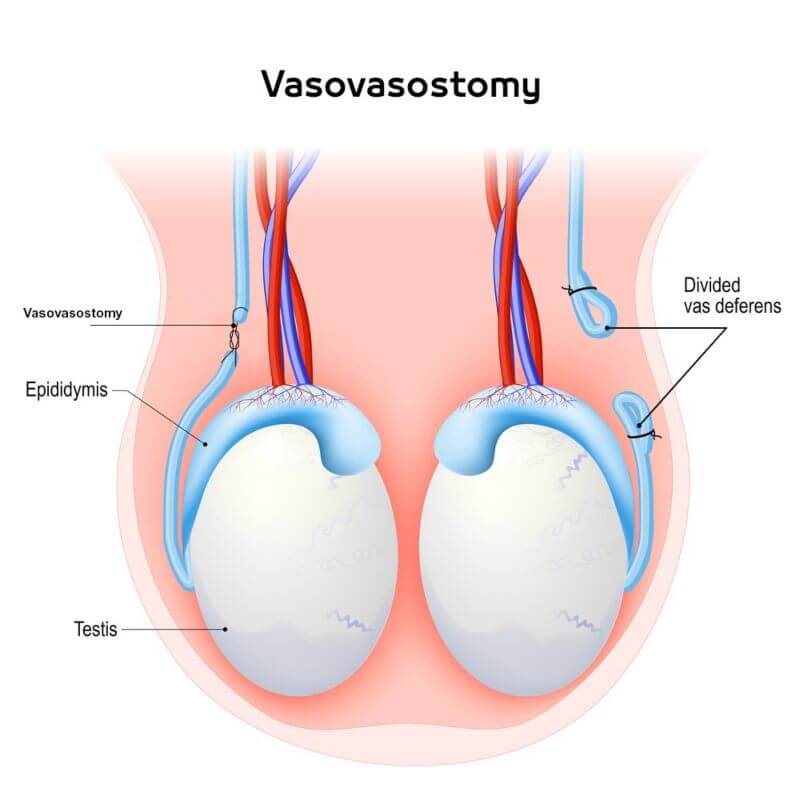Many factors cause infertility in women and prevent them from having the "family" they have always dreamed of. In this article we will address the most common cause that decreases a woman's chances of fertility.
Healthy fallopian tubes are an important factor for a successful pregnancy, it’s the pathway the oocyte (egg) takes from the moment of ovulation until it reaches the uterus. The inner surface of the fallopian tubes consists of cells called ciliated epithelium cells, these are hair-like cells that through movement facilitate the oocyte’s (fertilized or not) journey to the uterus.
Fallopian tubes
Are oviducts containing smooth muscle cells lined with ciliated epithelium; delicate hair-like structures that work in both directions to help the egg go from the ovaries to the uterus and help sperm go up to the fallopian tubes.
Blocked Fallopian tubes
The fallopian tubes are important for pregnancy to occur, it is where fertilization takes place. People that have blocked fallopian tubes usually do not discover this, until there is a delay in pregnancy, and she is required to do a hysterosalpingogram or diagnostic laparoscopy.
Causes of blocked fallopian tubes
There are many causes for fallopian tube obstruction:
- Endometrial infection.
- Ectopic pregnancy.
- Pelvic Inflammatory Disease (PID)
- Appendicitis.
- Abdominal or pelvic surgery.
- Sexually transmitted diseases, such as chlamydia or gonorrhea.
Obstruction of the fallopian tubes may occur due to inflammation in one tube which in turn spreads to the other tube.
Obstruction of the fallopian tubes
Fallopian tube obstruction is a cause of infertility in women.
The most common complication of fallopian tube obstruction is Ectopic pregnancy. This usually occurs when there is a partial blockage of one of the tubes and the fertilized egg gets stuck passing through and implantation occurs there.
Symptoms of blocked fallopian tube
The following symptoms may occur if the fallopian tube is blocked:
- Pain in the abdomen and pelvis.
- Abnormal vaginal discharge.
- Failed attempts to get pregnant.
- Dyspareunia (painful intercourse).
- Pain during urination.
- Menorrhagia (A heavy monthly cycle)
- Sometimes a woman experiences no symptoms
Diagnoses of blocked fallopian tube
There are several tests that the doctor may perform to diagnose the blockage of the fallopian tubes such as:
Hysterosalpingogram (HSG)
This is a diagnostic test done in the first couple of days after your menstrual cycle. The doctor inserts a speculum so he can visualize the cervix and then injects a dye into the uterus. An X-ray is made to see the course of the dye. If the tubes are healthy the dye should spill into the abdominal cavity if not there will be a loculation of the dye in the tubes.
Laparoscopy
Laparoscopy is a surgical technique where the surgeon makes small incision cuts (1 to 4) of about 1 cm around the navel area. One of these incisions is to insert a thin tube (Trocar) through which carbon dioxide is pumped to inflate your stomach, a camera is then placed to visualize the internal abdominal organs. Depending on what the gynecological surgeon’s findings are more small cuts are made through which tubes are brought in that can guide the operating tools.
During this procedure a dye is injected into the uterus through the vagina and if it spilled into the abdominal cavity the fallopian tubes are healthy.
The laparoscopy is not the first line of diagnosis if tubal problems are suspected because it requires anesthesia and is more invasive than a hysterosalpingogram.
Treatment for blocked fallopian tubes
These methods may help treat the fallopian tube obstruction:
- Salpingectomy; An operative procedure where the affected tube is removed in an open surgery or by a laparoscopic procedure. This will help with symptoms caused by the fallopian tube obstruction but does not restore fertility.
- Open or laparoscopic surgery to remove scar tissue or endometriosis that may affect fertility.
- Hormonal stimulation to increase ovulation; if just one fallopian tube is affected pregnancy could occur from the side where there is no blockage.
- Antibiotic treatment to treat infection
Bedaya Hospital has a team of experienced doctors with the expertise and means to detect and if possible, treat fallopian tube obstruction.
If the obstruction in the fallopian tubes is recurrent or can’t be done Bedaya Hospital offers many options for IVF and ICSI packages to bypass the problems of the fallopian tubes.
How to get pregnant with blocked fallopian tubes?
Every month when ovulation occurs an egg emerges from the ovary and travels through the fallopian tubes to the uterus, on this journey the sperm should reach the egg fertilize it and they continue as a fertilized egg to the uterus for implantation.
if there is a blockage in one or two fallopian tubes. The egg and sperm do not meet for pregnancy to happen. This can be bypassed by doing IVF or ICSI.







